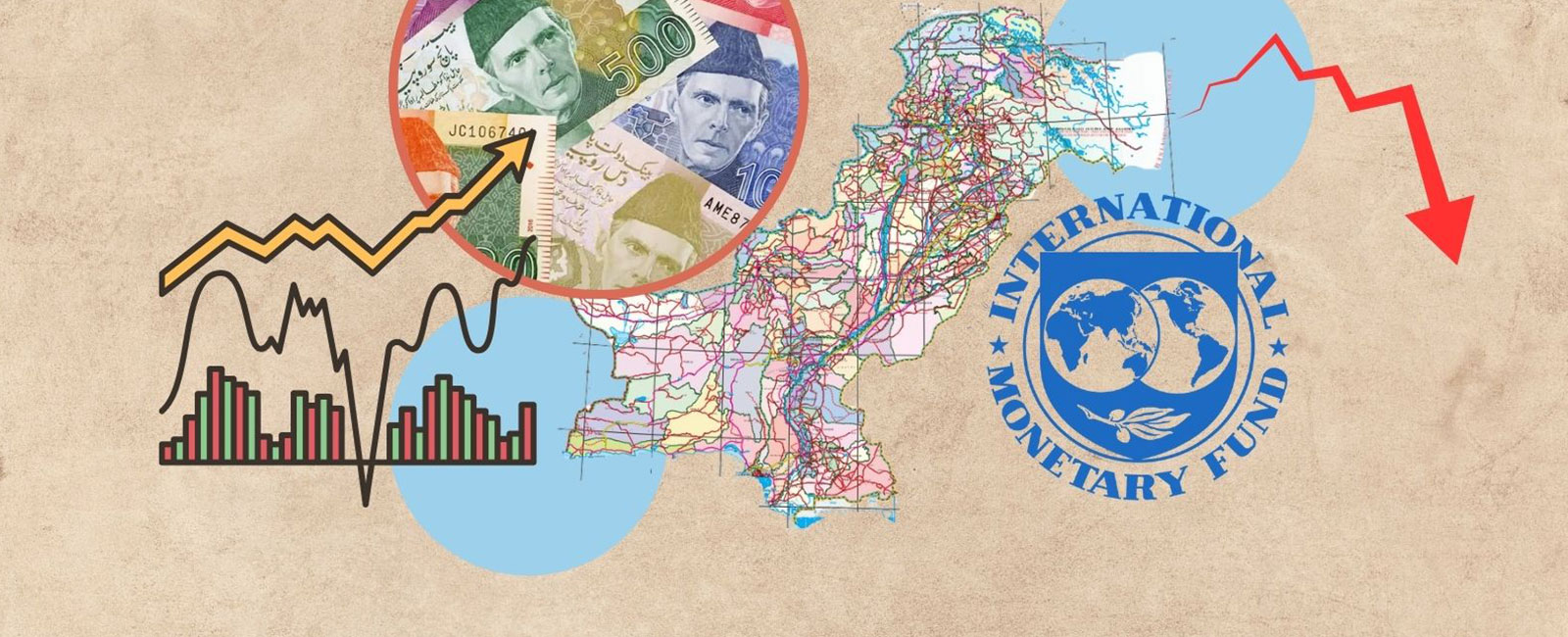Unpacking the NFC Award controversy and why IMF wants it revisited
Center should also be asked to ascertain reasons why tax to GDP ratio could not be jacked up to 15% of GDP in five years period

In the aftermath of demands of multilateral institutions including the IMF and World Bank for revising the National Finance Commission (NFC) has brought it into limelight mainly because the Center’s kitty became empty after diverting resources to provinces and fulfilling debt servicing repayments.
But the revision into NFC cannot be done on the wish or dictates of any multilateral institutions because it is a constitutional body where decisions can be made on the basis of consensus. Any unilateral decision within the ambit of NFC cannot be taken. For any decision, the Center and provinces will have to evolve consensus for moving forward. In the aftermath of 18th Constitutional amendments, the share of provinces in the NFC cannot be slashed down.
Keeping in view Constitutional aspect in the mind, there is need to bring reforms in the NFC with the purpose to bring some desired changes in the fiscal federalism.
Why increased demands for revision in NFC Award
The federal government’s major ticket items on expenditure front revolves around three Ds including debt servicing, defense and development. The last 7th NFC Award becomes relevant for the existing IMF program because the Fund sponsored bailout package known as Standby Arrangement (SBA) program of $3 billion envisages primary surplus target of Rs 400 billion, equivalent to 0.4% of GDP for the current fiscal year.
The primary balance is calculated after excluding debt repayments, which eats away major chunk of financial resources in case of Pakistan. In order to achieve primary balance in surplus mode, the government is left with no other options to axe either defense or development as well as subsidies and others grants if fails to generate the desired revenue mobilisation.
7TH NFC Award
The 7th NFC Award was finalized among the center and provinces in 2009 and became effective from July 1, 2010. This NFC Award brought paradigm shift in the resource distribution formula among the Centre and Provinces. Prior to 2010 NFC Award, the federal government was used to get share of 62.5% while the provinces were getting 37.5% out of total federal divisible pool (FDP).
The seventh NFC Award struck during the tenure of PPP led regime in December 2009 and became effective from July 1, 2010 had changed the distribution of Federal Divisible Pool (FDP) and major chunk of resources from the FDP as well as grants and subventions jacked up provinces share up to 62% while the center was left with only 38%.
For all practical purposes, the center was left in lurch whereby after transferring of resources under NFC Award and fulfilling the obligations of debt servicing, it became perpetual for the center to borrow to meet expenditure requirements of other heads including defense, development, subsidies, grants, payment of salaries and pension as well as running of government’s expenditures. This resulted into plunging into vicious cycles of accumulating the debt burden which had piled up from Rs 6 trillion to Rs 82 trillion in almost two decades from 2006 to 2024.
Last 7th NFC Award and what has gone wrong
The distribution of resources among the centre and the provinces is governed by Part-VI Chapter-1 of the 1973 Constitution. It provides the basic framework for the resource distribution between the federation and the provinces.
Article 160 of the Constitution provides for the setting up of a National Finance Commission (NFC) to periodically make recommendations to the President as to: The distribution between the Federation and the Provinces of the net proceeds of the taxes mentioned in clause (3); The making of grants-in-aid by the Federal Government to the Provincial Governments; The exercise by the Federal Government and the Provincial Governments of the borrowing powers, conferred by the Constitution; and any other matter relating to finance referred to the Commission by the President.
The last 7th NFC Award was announced on 18th March 2010 that had resolved the long- standing issue of distribution of resources between the Federation and Provinces of Pakistan. In the 7th NFC Award the share of Provinces in vertical distribution has been increased from 49% to 56% during 2010-11 and 57.5% during the remaining years of the Award.
The traditional population based criteria for horizontal distribution of resources amongst the Provinces has been changed to Multiple-Criteria Formula. According to this criteria 82% distribution was made on population, 10.3% on poverty and backwardness, 5% revenue collection/generation, and 2.7% on inverse population density (IPD).
The NFC envisaged that the tax to GDP ratio would be jacked up to 15% of GDP in order to enhance the pie of the resources for the country over five years period till 2014-15 but now there is 2024 but the tax to GDP ratio had declined from 10% to 8.5% or 9% of GDP till 2024.
It clearly demonstrates what has gone wrong as the very premises of the NFC Award could not be materialized as on one side the resource mobilisation efforts remained stagnant rather declined little bit while on other side the expenditure kept going up and standing at 22% of GDP, thus creating gap between revenues and expenditures known as the fiscal deficit which the economists termed it as mother of all economic ills.
Political parties and their stance on NFC
Former Minister for Finance Miftah Ismail stated in his tweets that Pakistan has not suddenly become more badly governed under PPP, PMLN, PTI and PDM compared to say the 1990s. Our fiscal rot has started since the 7th NFC award.
When we started giving almost 50% more money to the provinces since 2011, two things happened. One the provinces started spending money on turbo charge. And two, they paid no attention to raising taxes that were constitutionally given to them, i.e, property tax, agriculture income tax and sales tax on services.
On the other hand the federation, to keep deficits down, increased taxes at a rate faster than inflation and growth. But because more than 60% of the tax it collected went to the provinces, it deficit continued to rise.
Moreover as it could only tax imports, manufacturing and the salaried class, Pakistani manufacturers became less competitive, our exports started stagnating, and middle classes felt the squeeze.
All other fiscal reforms in Pakistan will remain insufficient unless the NFC award and distribution of taxation sectors (such as agriculture and property) are revisited.
Comparing current expenditures, Miftah Ismail stated that in 2013/14, fed govt current expenditures (net of debt servicing) were Rs 1736 bn and increased to Rs 5036 bn or an increase of 290% over nine years. However provincial current expenditures went up from Rs 1187 bn in 2013/14 to Rs 3798 bn, an increase of 320% over nine years.
But if you look at PSDP or ADP, federal govt expenditures went from Rs 435 bn in 2013/14 to Rs 734, an increase of only 59% over 9 years. And here provincial govt expenses exploded from Rs 431 bn to Rs 1241 bn, an increase of 347%.
Provinces have gone on a “development” spending spree for political and other reasons. Rafiullah Kakar sahib has shown that 90% of the 3000 schools built in one province since 2013 are nonoperational.
Finally federal tax revenues went from Rs 2375 bn to Rs 7169 in those nine years, an increase on 331%, but provincial tax collection went up only from Rs 49 bn to Rs 650 bn, an increase of 292%.
So provincial tax collection increase is slower than both their current and development expenditures. Worse still, it is less than 10% of the federal tax collection.
In 2022/23 all provinces combined collected less than Rs 126 bn from property and agriculture income tax. Rich Pakistanis park their wealth in land and there they are not taxed fairly. But if you give provinces so much money they have no incentives to tax property and agriculture.
Therefore under this NFC award the federal govt will continue to tax poor through sales tax, middle class through taxes on salaries and make Pakistan less competitive by exclusively taxing industry.
As this revenue distribution formula puts the federal government more and more into debt, it prints money causing inflation and forcing people into poverty.
Federalism teaches us not just to devolve authority but also to devolve responsibility. Strengthen the 18th amendment, cut wasteful federal expenses, but have provinces raise more of their own revenues also from property and agriculture. And financially help the poorer areas more generously.
The Pakistan Peoples Party (PPP) has rejected any revision in the NFC Award in totality.
What is the way forward?
The NFC requires reforms as first of all there should be an independent body having full resources to undertake research on the pattern of India so that they could study different fiscal arrangements before taking informed decision on resource distribution formula.
Secondly, the provinces received larger chunk of resources so there should be in-depth analysis to ascertain outcome in key areas of provincial subjects such as health and education.
Thirdly, the provinces have become habitual of getting easy money so their resources under NFC Award should be bound with their own resource generation efforts. The provinces should also be asked why they failed to come up with PFCs.
The centre should also be asked to ascertain reasons why tax to GDP ratio could not be jacked up to 15% of GDP in five years period.
Mehtab Haider is a business correspondent at The News. He posts on X @haider_mehtab




